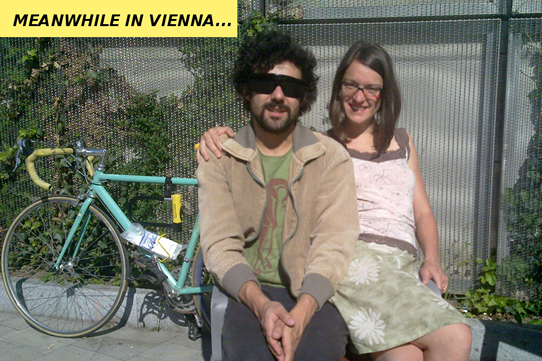Selena Savic
Presentation
Savić will discuss Unpleasant Design – a promenade through what this duo consider as a global fashion, manifested in the form of “silent gents” that take care of behavior in public space, without the explicit presence of authorities. Their presentation will draw on international examples, photographs, essays and case studies of unpleasant urban spaces, urban furniture and communication strategies reveal this pervasive phenomenon.
Biography
Selena Savić is an architect, artist and researcher, interested in the way technology mediates the space we inhabit. She graduated from the Faculty of Architecture, University of Belgrade in 2006. She continued her studies in Media Design, graduating from the Networked Media department at the Piet Zwart Institute in Rotterdam, The Netherlands in 2010. Since September 2011 she is a doctoral candidate at the Federal Technical Institute in Lausanne, Switzerland (EPFL) and the Instituto Superior Técnico in Lisbon, Portugal (IST), and a grantee of the FCT, Portugal. At EPFL, Selena is one of the founding researchers at SINLAB, an experimental laboratory situated at the intersection of Performing Arts, Architecture, Science, Engineering and Philosophy. Her artistic work and research was exhibited at numerous exhibitions and festivals.
Links
Unpleasant Design Workshop, Nov 12, 11-16.00, Studio with Selena Savić & Nikola Korac
As part of this programme Savić and Nikola Korac will be running a workshop in Unpleasant Design.
Unpleasant Design is a phenomenon in which social control is inherent in the design of objects and spaces. Park benches with a central armrest where one cannot sleep, blue light in public toilets which makes intravenous injection impossible… are just a few common features we regularly encounter in public spaces. In recent years, unpleasant design has become a global fashion with many examples to be found across cities worldwide.
Designing “unpleasant design” is an intricate process. At the Unpleasant Design workshop, the participants will use persuasive and coercive design techniques to invent a design which targets a specific group, behaviour or product. We will focus particularly on technology enabled discrimination. As pervasive technology enters urban space, the configuration of the built environment will eventually change. The participants will be invited to actively take part in this change.
Places limited/book: Weise7
No special tools & skills needed. Cost: 20€
Date of publication
Mon 2 Sep 2013


